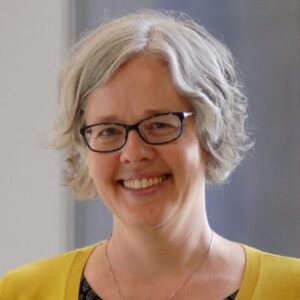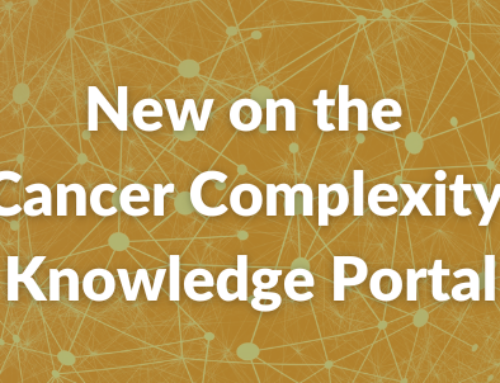Running a research lab, no matter the discipline, is like building a start-up company within a massive bureaucracy, yet few scientists receive training in the management and leadership skills and practices required to lead a successful research program. This series of workshops and seminars is designed to help Early Career Researchers begin to create systems for your lab that give you time and space to do the science that you love.
Our first workshop in this series will be led by Drs. Betsy Rolland and LaKaija Johnson, on Monday, February 5, 2024, 10:00 AM – Noon PT / 1:00 – 3:00 PM ET.
Building a Research Program – Workshop
In this two-hour workshop, Team Science experts Drs. Betsy Rolland and LaKaija Johnson will walk you through essential elements of developing your research program and approach to collaboration. Ideally suited for ECRs in the early stages of building their research teams, this workshop will focus on: developing an overarching vision for your research and your team, as well as ways to articulate that vision to potential team members and collaborators; crafting a plan for building the team you need to achieve that vision; developing a collaboration plan that lays out how you want your team to collaborate; and ways to identify and address potential facilitator and barriers that may impact your plan. This workshop will be highly interactive and participants will be spending time in small groups discussing these topics.
Registration is required to participate. Learn more and register. This workshop is limited to 40 attendees. Priority for this workshop will be given to Early Career Researchers from within the MC2 Center Community.
 Dr. Betsy Rolland is the Associate Director for Team Science at Sage Bionetworks. Prior to joining Sage in July, she served as the Director of Team Science + Research Development for the Carbone Cancer Center and the Institute of Clinical and Translational Research at the University of Wisconsin-Madison. She holds a PhD in Human Centered Design & Engineering and a Master of Library & Information Science, both from the University of Washington, and a Master of Public Health from Johns Hopkins Bloomberg School of Public Health. Dr. Rolland’s research focuses on coordination and collaboration in team-science projects, including how to design, build, and evaluate infrastructure to support complex, multi-investigator initiatives. Before joining UW-Madison, she was a post-doctoral Cancer Prevention Fellow at the National Cancer Institute. Dr. Rolland has served as the Principal Investigator for the coordinating centers for several NIH-funded research initiatives, as well as leading an NLM-funded study of information behaviors in Clinical and Translational Research teams. Dr. Rolland was the 2021 recipient of the Association for Clinical and Translational Science Award for Team Science. She also recently completed a certificate in professional coaching and has been coaching early-stage investigators in building sustainable team science research programs.
Dr. Betsy Rolland is the Associate Director for Team Science at Sage Bionetworks. Prior to joining Sage in July, she served as the Director of Team Science + Research Development for the Carbone Cancer Center and the Institute of Clinical and Translational Research at the University of Wisconsin-Madison. She holds a PhD in Human Centered Design & Engineering and a Master of Library & Information Science, both from the University of Washington, and a Master of Public Health from Johns Hopkins Bloomberg School of Public Health. Dr. Rolland’s research focuses on coordination and collaboration in team-science projects, including how to design, build, and evaluate infrastructure to support complex, multi-investigator initiatives. Before joining UW-Madison, she was a post-doctoral Cancer Prevention Fellow at the National Cancer Institute. Dr. Rolland has served as the Principal Investigator for the coordinating centers for several NIH-funded research initiatives, as well as leading an NLM-funded study of information behaviors in Clinical and Translational Research teams. Dr. Rolland was the 2021 recipient of the Association for Clinical and Translational Science Award for Team Science. She also recently completed a certificate in professional coaching and has been coaching early-stage investigators in building sustainable team science research programs.
 Dr. LaKaija Johnson is a population health scientist, educator, and strategist with over a decade of experience leading and evaluating the implementation of strategies to build capacity and strengthen infrastructure to advance systems change in academic, government, and non-profit settings.
Dr. LaKaija Johnson is a population health scientist, educator, and strategist with over a decade of experience leading and evaluating the implementation of strategies to build capacity and strengthen infrastructure to advance systems change in academic, government, and non-profit settings.
LaKaija currently serves as a Principal Scientist in Team Science at Sage Bionetworks, where she provides leadership on how to implement and evaluate best practices for collaboration building and team science on the Science Coordination & Community Engagement team.
LaKaija is a graduate of the University of Arkansas for Medical Sciences, where she earned a master’s degree in Public Health, the University of Arkansas Clinton School of Public Service, where she earned a master’s degree in public service, and the University of Nebraska Medical Center, where she earned her Ph.D. in health promotion and disease prevention research.
LaKaija’s career is built on a passion for health equity and social justice that she leverages to identify opportunities to take collective action by implementing innovative evidence-based strategies, programs, and policies to create more diverse, equitable, and inclusive research and practice environments.


